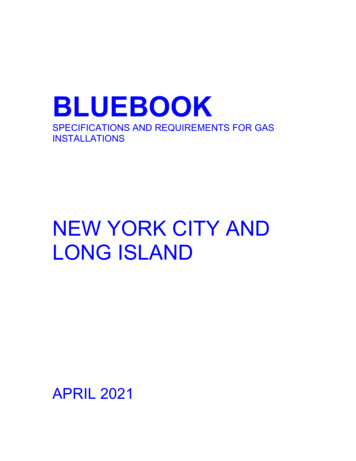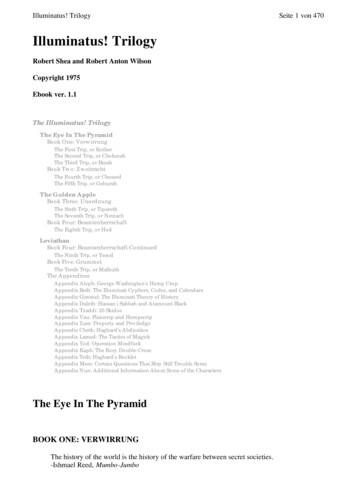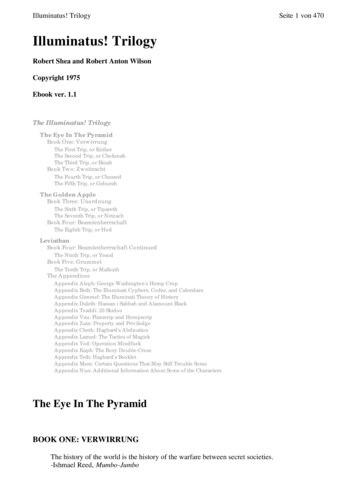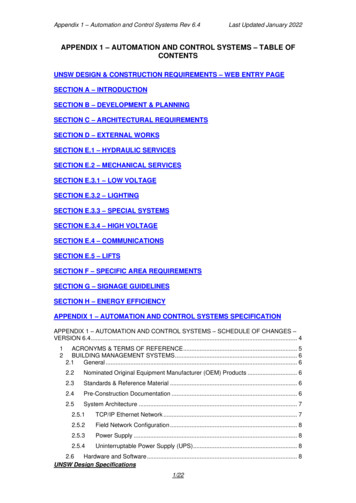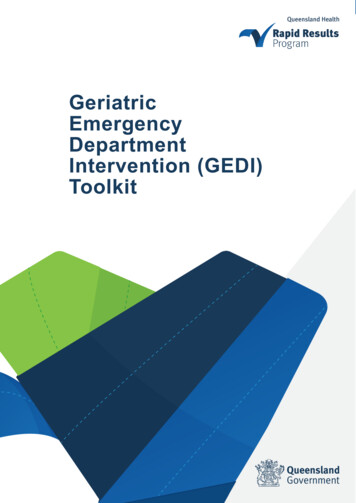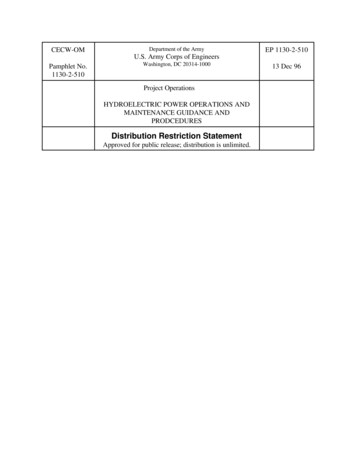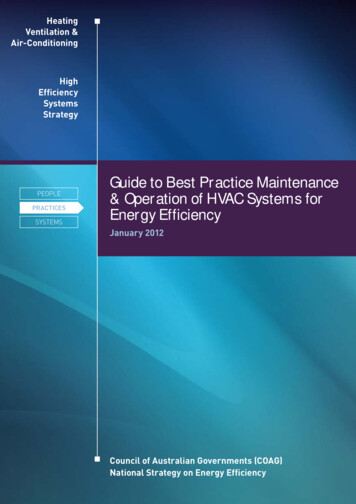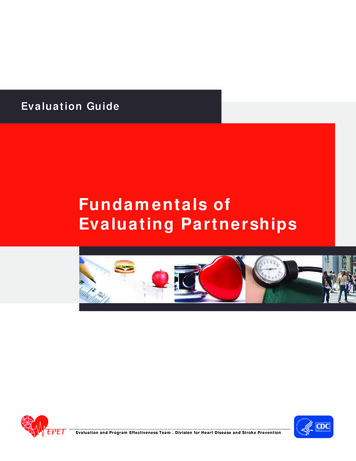
Transcription
THE SECRETARY OF STATECONGRESSIONAL BUDGETJUSTIFICATIONAppendix 1:DEPARTMENT OF STATEDIPLOMATIC ENGAGEMENTFiscal Year 2023
DEPARTMENT OF STATECONGRESSIONAL BUDGET JUSTIFICATIONAppendix 1FISCAL YEAR 2023STATEMENT OF THE SECRETARY OF STATEBUDGET SUMMARY AND TABLESBudget Summary . 1Budget Summary by JSP Goals and Objectives . 3Summary of Appropriations. 4U.S. Direct Hire Positions . 7Funding Crosscuts . 9Funding Crosscut: Diversity, Equity, Inclusion, and Accessibility (DEIA). 10Funding Crosscut: Indo-Pacific Strategy and Countering the People's Republic of China . 16Ten-Year Appropriation History . 20Public Diplomacy Resources. 25Department of State Fee Collections . 27Legislative Language . 33ADMINISTRATION OF FOREIGN AFFAIRSDiplomatic Programs. 48IT Central Fund . 58Consular and Border Security Program. 74Working Capital Fund . 87Diplomatic Programs: Human Resources . 97Foreign Service Institute . 98Global Talent Management . 103Human Resources Special Complement . 109Diplomatic Programs: Overseas Programs . 113i
African Affairs . 114Conflict Stabilization Operations . 121East Asian and Pacific Affairs . 124European and Eurasian Affairs. 130Foreign Service National Separation Liability Trust Fund . 137Office of International Conferences . 139International Organization Affairs . 141Medical Services. 145Near Eastern Affairs. 148Post Assignment Travel . 153South and Central Asian Affairs . 155Western Hemisphere Affairs . 160Public Diplomacy . 166Public Diplomacy Resources. 201Diplomatic Programs: Diplomatic Policy and Support . 203Administration . 204Arms Control, Verification and Compliance . 209Budget and Planning . 213Office of the Chief of Protocol . 216Comptroller and Global Financial Services . 220Cyberspace and Digital Policy . 225Democracy, Human Rights and Labor . 228Economic and Business Affairs. 233Energy Resources . 241Global Public Affairs . 245Information Resource Management. 248Intelligence and Research. 251International Religious Freedom. 259International Security and Nonproliferation . 261Office of the Legal Adviser. 265ii
Legislative Affairs . 269Management . 272Oceans and International Environmental and Scientific Affairs . 275Political-Military Affairs . 279Population, Refugees and Migration. 283Office to Monitor and Combat Trafficking in Persons . 286Diplomatic Programs: Security Programs . 296Counterterrorism. 297Office of Foreign Missions. 301Worldwide Security Protection . 304Embassy Security, Construction, and Maintenance . 323OTHER ADMINISTRATION OF FOREIGN AFFAIRSOffice of Inspector General. 334Educational and Cultural Exchange Programs . 341Representation Expenses. 351Protection of Foreign Missions and Officials . 355Emergencies in the Diplomatic and Consular Service. 357Buying Power Maintenance Account . 361Repatriation Loans Program Account. 363Payment to the American Institute in Taiwan . 366INTERNATIONAL ORGANIZATIONSContributions to International Organizations . 371Contributions for International Peacekeeping Activities . 408INTERNATIONAL COMMISSIONSInternational Boundary and Water Commission - Salaries and Expenses . 415International Boundary and Water Commission - Construction. 419American Sections . 424International Joint Commissions. 424International Boundary Commissions . 428Border Environment Cooperation Commission . 431iii
International Fisheries Commissions . 433RELATED PROGRAMSThe Asia Foundation . 440East-West Center . 443National Endowment for Democracy . 446SPECIAL FUNDS AND TRUST FUNDSCenter for Middle Eastern-Western Dialogue . 452Eisenhower Exchange Fellowship Program . 454Israeli Arab Scholarship Program . 456International Chancery Center . 457Foreign Service Retirement and Disability Fund . 459iv
United States Department of StateWashington, D. C 20520The Department of State and U.S. Agency for International Development play a critical role inmaintaining international peace and security. These two agencies stand on the frontlines ofglobal challenges that will shape Americans' lives and livelihoods for years to come. At thismoment of profound disruptions - including the continuing COVID-19 pandemic, the climatecrisis, rising authoritarianism, intensifying geopolitical rivalries, record numbers ofrefugees, anda technological revolution that carries both enormous promise and peril - U.S . diplomacy anddevelopment efforts are essential to uphold democratic values around the world and ensureAmericans' security and prosperity at home.The President' s FY 2023 budget, which includes 60.4 billion for the Department of State andUSAID, will make it possible for us to continue to lead the world in tackling global challengesand upholding the international system that the United States did so much to build.The President's request delivers on our commitments to the Ukrainian people and our Allies andpartners in Europe. It includes additional economic and security support for Ukraine to helpUkrainians defend their country from Russia' s premeditated, unprovoked, and unjustifiedinvasion. It also provides significant support to our partners in the region by supporting them ontheir paths toward democracy, Euro-Atlantic integration, and open market economies whilebuilding their capacity to counter coercive actions from external actors.Even as we focus on urgent needs in Ukraine, we must not lose sight of other acute challenges,including the impact of the global COVID-19 pandemic that continues to affect people aroundthe world. To protect Americans and sustain the U.S. economic recovery, we must halt the globalspread of COVID-19 and bolster global health security systems to prevent the next pandemic.The President's budget request invests in combating global infectious diseases and bolsteringglobal health security through a new pandemic early warning network and health resilience fund.It strengthens the global health workforce and advances global research and health securityfinancing to prevent, detect, and respond to infectious disease outbreaks. And it continuesessential global health programs that are more important than ever as COVID-19 continues tostrain local health systems and threatens to reverse the gains made in recent years againstHIV/AIDS, tuberculosis, and malaria.The United States' longstanding scientific, technological, and innovation edge is a strategic assetthat underpins our national security, economic strength, and democratic values. The President' srequest will advance U.S. leadership in cyberspace and the digital economy while working toshape the norms and standards that govern transformative new technologies. It also supports theAdministration's Build Back Better World Initiative, which will help our partners build highquality infrastructure necessary for inclusive and sustainable growth by raising labor andenvironmental standards, promoting transparency, combating corruption, and partnering with theprivate sector, including American firms and workers, to address global infrastructure needs.This initiative offers a compelling alternative to the People' s Republic of China's Belt and RoadInitiative and other models of infrastructure which distort markets, fuel corruption, createunsustainable debt burdens, and degrade resources.v
The climate crisis is no longer something we must work to prevent - it has already begun, as wecan see from the historic droughts, fires, storms, and flooding that are affecting every region ofthe United States. To mitigate the most catastrophic outcomes of the climate crisis in thiscentury, we need to secure climate mitigation and adaption outcomes that are both aggressiveand ambitious. With 85 percent of annual global emissions coming from outside of the UnitedStates, we cannot do it alone- and we will not succeed without strong U.S. leadership. TheDepartment is working to lead by example and steward taxpayer dollars through our facilitiesand operations by deploying U.S. technologies and solutions that improve energy efficiency andoperational resilience. This budget request will enable the Department and USAID to advanceand scale up international climate programs and accelerate the global energy transition to netzero by 2050; help developing countries enhance resilience to the growing impacts of climatechange while promoting independence from non-renewable energy sources; and modelrenewable energy, climate adaptation, and sustainability principles in our domestic and overseasfacilities .We also face unprecedented and overlapping humanitarian crises, including global migration anddisplacement worsened by climate change, corruption, and conflict, including in Ukraine. Ourbudget request will allow the Department of State and USAID to execute the Administration' sRoot Causes Strategy to stem the flow of irregular migration from Central America by helping toprevent violence, reduce poverty and corruption, and expand jobs and educational opportunitiesin the region. This budget request will also help rebuild U.S. refugee admissions programs andrevitalize American leadership on humanitarian issues. It supports the Administration' s work toadvance human rights, racial and gender equity, and to increase the inclusion of underservedcommunities around the world- an effort that is ever more urgent as U.S. strategic competitorsseek to exploit social fractures to foment polarization, disinformation, and instability andundermine democracy and universal human rights.The United States cannot counter adversaries or solve global challenges alone. The President' srequest invests in our alliances and maintains our longstanding commitments to key partners. Itadvances peace, prosperity, and security across the Inda-Pacific and Europe; renews ourpartnerships in critical regions such as Central America; expands our diplomatic anddevelopment initiatives in Africa and Asia; and positions us to effectively compete with Chinaand Russia. By continuing our commitment to pay U.S . assessed contributions to internationalorganizations and UN peacekeeping missions on time and in full , this budget request affirmsU.S. leadership in those organizations, at a moment when our competitors are seeking to expandtheir influence. The budget request would also ensure that the United States participates as amember in good standing in the UN Security Council and other vital inter-governmental bodiessuch as the World Health Assembly that channel billions of dollars of resources and makecritical decisions affecting peace and security, the global economy, the environment, civilsociety, and assistance for refugees and displaced persons. The request also advances U.S.leadership by funding participation in international conferences, expositions, and the AsiaPacific Economic Cooperation events that the United States will host in 2023. It strengthens U.S.partnerships by helping to meet the Sustainable Development Goals, including global education,ending hunger and malnutrition, and building more sustainable, equitable, and resilient foodvi
systems. The request also maintains funding for Afghanistan assistance and continued diplomaticoperations in support of our Afghan allies, recognizing these are dynamic, events-driven needs.Finally, this budget request continues urgent, necessary investments to build and transform ourtechnology and workforce, in line with the President's National Security Memorandum onrevitalizing national security institutions. It would enable the Department and USAID to meetcritical staffing gaps and attract and retain a diverse workforce with expertise in critical emergingfields. It would also expand our professional and development training capacity to help ourdiplomatic and development professionals build the skills they need to manage increasinglycomplex national security issues. And the request positions us to adopt and maintain moderntechnology to improve efficiency, collaboration, data analysis capabilities, and informationsecurity.We appreciate your continued support in providing resources for the U.S. Department of Stateand USAID to advance the interests of the American people, their safety, and economicprosperity.vii
BUDGET SUMMARYBUDGET SUMMARY AND TABLESBudget SummaryOverviewThe Secretary of State’s FY 2023 Budget Request for Diplomatic Engagement mobilizes coalitions to addressglobal challenges; shapes an international environment in which the United States can thrive; strengthensdemocratic institutions; modernizes the diplomatic workforce; and serves U.S. Citizens around the world.To achieve these goals, the FY 2023 Request for Diplomatic Engagement includes 17.5 billion in discretionaryappropriations, 5.0 billion in projected fee revenue, and 158.9 million in mandatory appropriations for theForeign Service Retirement and Disability Fund.Highlights of the Request include:Diplomatic Staffing, Operations, and Programs: 5.8 billionThe Department’s FY 2023 Request for Diplomatic Programs (DP) Ongoing Operations is 5.8 billion, including 5.1 billion for Program Operations and 701 million for Public Diplomacy. The Request is a net increase of 409 million (7.6 percent) from the FY 2022 Request. As part of the proposed workforce increase, the DPRequest supports 570 new positions, of which 250 would expand the Department’s Professional Development andTraining Float. The Request also expands programs to foster workforce diversity and inclusion; strengthenspolicy expertise on cyberspace, emerging technology, and climate issues; and provides for the proposed 4.6percent Federal pay raise.Information Technology: 470 millionThe FY 2023 Request includes 470 million for the Capital Investment Fund to enhance global IT capabilities forthe Department’s workforce; invest in technology services and data analytics; and mitigate cybersecurity risks.The Request continues cybersecurity prioritization in support of Executive Order 14028, Improving the Nation’sCybersecurity, as well as compliance with OMB Memorandum M-22-09, Moving the U.S. Government TowardZero Trust Cybersecurity Principles. The CIF comprises about 15 percent of the Department’s total IT spendingacross all funding sources.Diplomatic and Embassy Security: 5.8 billionThe FY 2023 Request protects U.S. government personnel, facilities, and information both domestically andoverseas. The 3.8 billion Request for Worldwide Security Protection (WSP) within Diplomatic Programscontinues support for overseas security operations and personnel, countering emerging threats to the Department’semployees and others serving under Chief of Mission authority. This includes funding for Anomalous HealthIncident (AHI) monitoring and research, to counter the emerging threat of drones to diplomatic facilities, and tostrengthen our cybersecurity against malign actors.The FY 2023 Request of 2.0 billion for Embassy Security Construction and Maintenance provides for secure,safe, and functional diplomatic and consular missions overseas. Combined with other agency contributions, theRequest sustains 2.2 billion for the construction and maintenance of secure embassies. The FY 2023 Requestalso establishes a new accessible housing program to procure such residences at posts with a housing pool.International Organizations: 4.0 billionAs the United States’ competitors are seeking to expand their influence, the FY 2023 Request includes 2.3billion for U.N peacekeeping missions, including 730 million to begin paying down about 2/3 of the arrears that1
BUDGET SUMMARYhave accumulated since 2015. An improved U.S. financial standing will provide leverage in negotiations in theSecurity Council and General Assembly on needed reforms. The Request for Contributions to InternationalOrganizations is nearly 1.7 billion, positioning the United States to support our commitments to entities likeNATO, while continuing to press for needed reforms in certain international organizations as well.Consular and Border Security Program: 5.0 billion in new revenue and 3.8 billion in anticipatedspendingThe FY 2023 Request for the Consular and Border Security (CBSP) account reflects the continued recovery fromthe impacts of the pandemic. CBSP provides protection to the lives and security interests of U.S. citizens andcontributes to the security of the nation's borders. It is a core element of the coordinated national effort to denyindividuals who threaten the country entry into the United States and to facilitate the entry of legitimate travelers.The Request projects 5.0 billion in collections (enhanced by expanded fee authorities) and 3.8 billion inanticipated spending. The Department continues to request flexibility to better align fees with actual costs andadapt to fluctuations in global workload.2
BUDGET SUMMARY BY JSP GOALS AND OBJECTIVESBudget Summary by JSP Goals and ObjectivesFY 2023 Budget Summary by Joint Strategic Plan (JSP) Goals and ObjectivesAlignment by Bureau Activity for Diplomatic Engagement Funding3
SUMMARY OF APPROPRIATIONSSummary of AppropriationsSummary of Appropriations – Enduring( in thousands)FY 2022EstimateFY 2022RequestFY 0,107,9761,865,9992,226,122--8,759,1419,170,013Of Which, Overseas ContingencyOperations (OCO)1,865,9992,226,122Ongoing Operations 70,18021,300300,000320,000Summary of Appropriations - EnduringAdministration of Foreign AffairsOf Which, Overseas ContingencyOperations (OCO)State ProgramsOf Which, Overseas ContingencyOperations (OCO)Diplomatic ProgramsAdditional Appropriations - OngoingOperations 2/, 3/Worldwide Security Protection4/Capital Investment FundConsular Border Security ProgramsFY 2021Actual-Additional Appropriations - ConsularBorder Security Programs 5/Sudan Claims Resolution – AdditionalAppropriations 5/Embassy Security, Construction, 796-5,414,773Increase 00----150,000----1,950,4491,950,449Of Which, OCO824,287824,287Ongoing ,890157,885Worldwide Security UpgradesOther Administration of Foreign AffairsOffice of Inspector GeneralOf Which, OCOEducational and Cultural Exchange ProgramsRepresentation ExpensesProtection of Foreign Missions and OfficialsEmergencies in the Diplomatic and ConsularService (EDCS)Additional Appropriations - 3,149---
SUMMARY OF APPROPRIATIONSSummary of Appropriations - EnduringBuying Power Maintenance AccountRepatriation Loans Program AccountFY 2021ActualFY 2022EstimateFY 2022RequestFY 2023RequestIncrease 58332,583-International 93,932Contributions to International t to the American Institute in TaiwanOf Which, OCOContributions for International PeacekeepingActivitiesOf Which, OCOInternational Commissions (Function 300)International Boundary and WaterCommission - S&EInternational Boundary and WaterCommission - ConstructionAmerican SectionsInternational Joint CommissionInternational Boundary CommissionBorder Environment CooperationCommissionInternational Fisheries 2,846-(1,902)53,766(9,080)0Related ProgramsThe Asia FoundationNational Endowment for DemocracyEast-West ,70019,7000Special and Trust FundsCenter for Middle Eastern-Western DialogueEisenhower Exchange Fellowship ProgramIsraeli Arab Scholarship 170175511911911991(28)5
SUMMARY OF APPROPRIATIONSSummary of Appropriations - EnduringInternational Chancery CenterForeign Service Retirement and DisabilityFund (non-add)FY 2021ActualFY 2022EstimateFY 2022RequestFY 8,900Increase /Decrease0TOTAL, Department of StateAppropriations - & OCOTOTAL, Additional AppropriationsGRAND TOTAL, Department of 0,51017,516,935196,425196,4251/ FY 2021 Actuals for Diplomatic Programs includes a 99.2 million transfer in from the Buying Power Maintenance Account, a 67.3million transfer in from WSP and a 100,000 transfer in from CIPA.2/ FY 2021 Additional Appropriations for Department of State operations from American Rescue Plan Act, 2021 (P.L.117-2)3/ Includes 44 million in FY 2022 Emergency Additional Appropriations from Additional Afghanistan Supplemental Appropriations Act,2022 (P.L.117-70)4/ FY 2021 Actuals for Worldwide Security Protection includes a 150 million transfer-out to EDCS and 67.3 million reprogramming-out toDiplomatic Programs Ongoing Operations.5/ Provided in Title IX Emergency Appropriations from the Consolidated Appropriations Act, 20216/ FY 2022 Emergency Additional Appropriations include 276.9 million from Afghanistan Supplemental Appropriations Act, 2022 (Div. C,P.L.117-43) and 36.0 million from Additional Afghanistan Supplemental Appropriations Act, 2022 (Div. B, P.L.117-70).6
U.S. DIRECT HIRE FUNDED POSITIONSU.S. Direct Hire PositionsDepartment of StateU.S. Direct Hire Funded Positions: Employment Ceiling for Fund SourcesFY 2021 ActualU.S. Direct HireFunded PositionsCSFSFY 2022 RequestTotalCSFSFY 2023 RequestTotalCSFSTotalChangefromFY 2022RequestChangefromFY 2022RequestDIP
Foreign Service National Separation Liability Trust Fund 137 . . and scale up international climate programs accelerate the global energy transition to net zero by 2050; help developing countries enhance resilience to the growing impacts of climate . By continuing our commitment to pay U.S. assessed contributions to international


